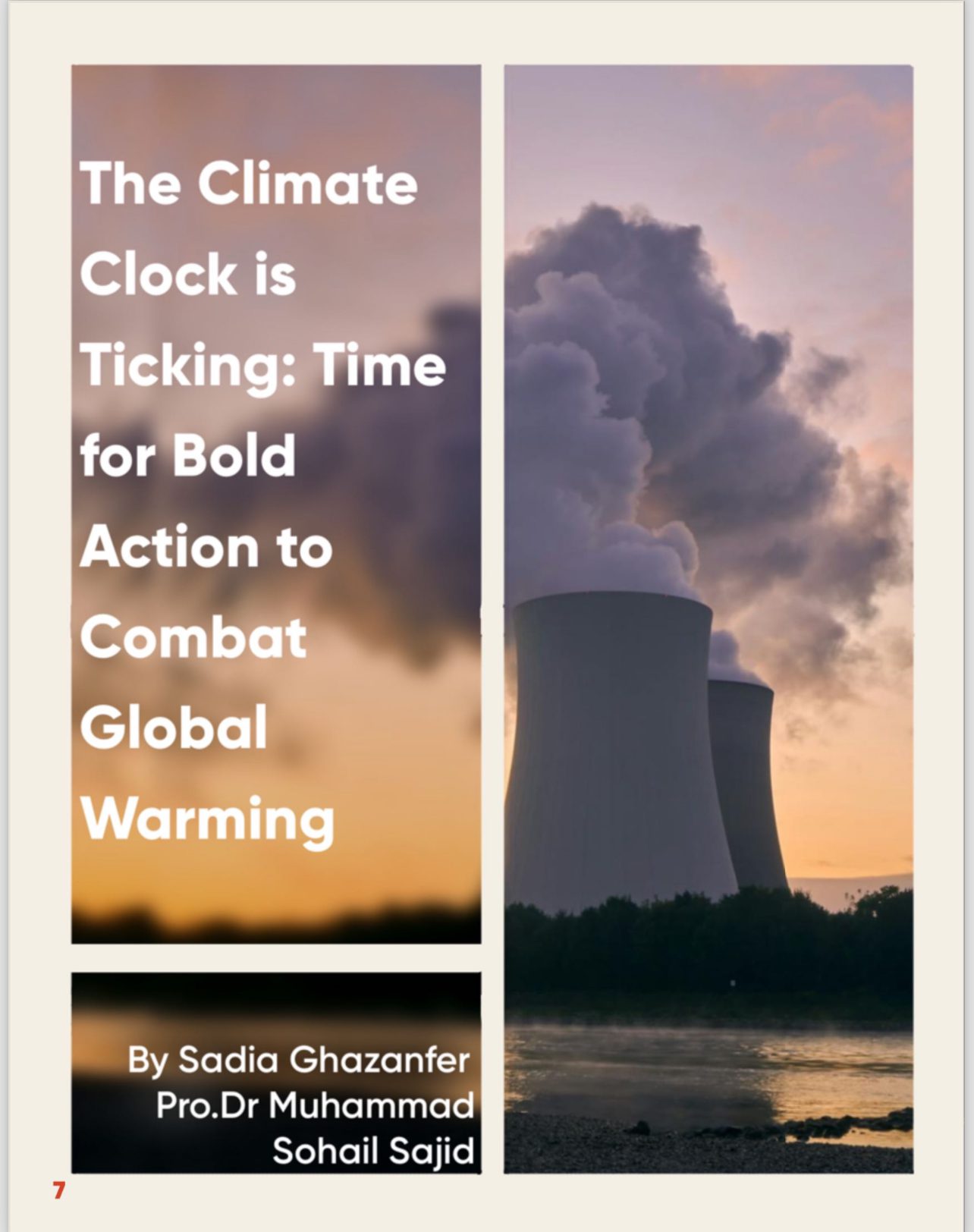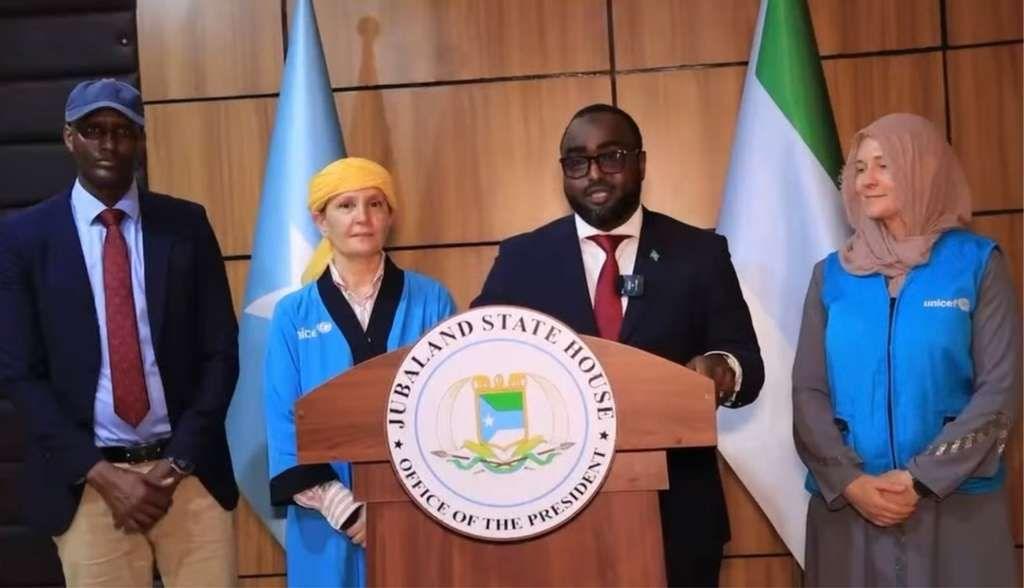By Sadia Ghazanfer (Pakistan)
Climate change refers to long-term shifts in temperature, precipitation patterns, and other weather-related phenomena occurring across the Earth’s surface.
As we stand on the precipice of a climate crisis, the metaphorical clock of climate change ticks incessantly, counting down the precious moments we have left to mitigate its catastrophic effects. With each passing second, the urgency to take decisive action grows more palpable, as the consequences of inaction loom ever larger on the horizon. These changes are primarily driven by human activities, such as the burning of fossil fuels, deforestation, and industrial processes, which release greenhouse gases into the atmosphere. This unprecedented warming of the planet has set in motion a cascade of destructive events, from extreme weather events to melting ice caps and rising sea levels. The implications of climate change are far-reaching and profound, affecting every facet of life on Earth.
Agricultural systems are disrupted by shifting weather patterns, leading to crop failures and food insecurity for millions. Ecosystems are under siege, with biodiversity loss and habitat destruction threatening the delicate balance of life. As the climate clock ticks, the window of opportunity to avert the worst impacts of climate change narrows. Scientists warn that we are rapidly approaching critical tipping points, beyond which the damage may become irreversible. The time to act is now, before it’s too late. However, addressing the climate crisis requires more than just technological innovation. it demands a fundamental shift in our values and priorities as a global society. It requires leaders to prioritize the long-term health of the planet over short-term economic gain, and individuals to make sustainable choices in their daily lives. The Conference of the Parties (COP) is a crucial annual event organized under the United Nations Framework Convention on Climate Change (UNFCCC), where world leaders, policymakers, scientists, and activists come together to address the pressing issue of climate change. COP28, the 28th iteration of this conference, convened in response to the escalating climate crisis, aiming to strengthen international cooperation and accelerate global efforts to mitigate greenhouse gas emissions and adapt to the impacts of climate change. Pakistan, like many other developing countries, is highly vulnerable to the impacts of climate change, including extreme weather events, water scarcity, and agricultural disruptions. In COP28, Pakistan reiterated its commitment to addressing climate change and highlighted its efforts to reduce greenhouse gas emissions and enhance resilience to climate impacts.
The climate clock may be ticking, but it’s not too late to change course. By coming together as a global community, we have the power to slow the hands of the clock and create a more sustainable future for generations to come. The time for action is now. In line with the urgent need for bold action to combat global warming, COP28 serves as a critical platform for countries like Pakistan to reaffirm their commitment to addressing climate change. Pakistan’s participation in COP28 underscores its recognition of the gravity of the climate crisis and its willingness to collaborate on global solutions. It’s vulnerability to climate change impacts underscores the significance of its role in COP28 and beyond. The country’s efforts to enhance resilience and reduce emissions align with the overarching goals of the conference, which aims to accelerate global action to limit global warming and build climate resilience. By actively engaging in forums like COP28, Pakistan seeks to secure support and resources needed to implement ambitious climate policies and initiatives. in the face of the worsening scenario of climate change, nations must adopt a range of mitigating strategies to mitigate its impacts and build resilience. Firstly, transitioning to renewable energy sources such as solar, wind, and hydroelectric power is imperative to reduce greenhouse gas emissions and limit global warming. Investing in energy efficiency measures and implementing stringent regulations on fossil fuel use can further accelerate this transition.
Additionally, protecting and restoring natural ecosystems, such as forests, wetlands, and coral reefs, can enhance carbon sequestration and biodiversity while providing essential ecosystem services.
Sustainable land management practices, and sustainable agriculture, can help mitigate deforestation and soil degradation while promoting carbon storage in vegetation and soils. Furthermore, enhancing climate resilience through infrastructure upgrades, early warning systems, and community-based adaptation measures is essential for safeguarding vulnerable populations and ecosystems from the impacts of climate change. It is crucial to prioritize climate action and integrate climate considerations into all aspects of policymaking and planning. This includes setting ambitious emissions reduction targets, developing comprehensive climate adaptation plans, and fostering international cooperation to address shared challenges.
By embracing innovation, collaboration and sustainable development practices, nations can work together to mitigate the worst impacts of climate change and build a more resilient and sustainable future for all.
Sadia Ghazanfer and Pro.Dr Muhammad Sohail Sajid
Department of Parasitology, University of Agriculture, Faisalabad
Author can be reached at sadiaghazanfer90@gmail.com





